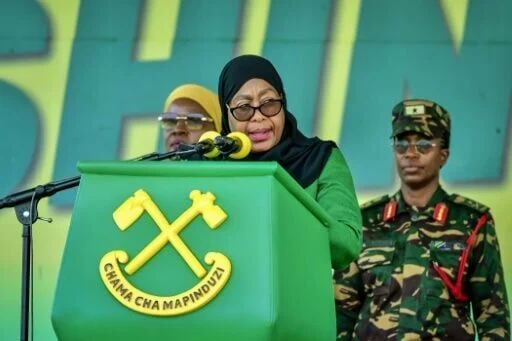Tanzania’s President Samia Suluhu Hassan has ordered an official investigation into the deadly unrest that erupted during last month’s election week, following widespread accusations that security forces violently suppressed historic protests. President Samia was declared the winner with 98% of the vote, a result the opposition dismissed as a “mockery of democracy.”
Opposition leaders claim that hundreds of protesters were killed, though authorities have not released an official death toll. The violence shook a country long known for stability and political calm.
During an address to parliament on Friday, President Samia directed prosecutors and law-enforcement agencies to exercise leniency toward those arrested during the protests. At least 240 people—many of them young—were charged with treason in the aftermath of the unrest.
Quoting Scripture, she said: “Father, forgive them, for they know not what they do.” She added that many youths were caught up in the protests without fully understanding the consequences.
The president’s remarks came only days after the UN High Commissioner for Human Rights, Volker Türk, urged Tanzania to conduct a full, transparent investigation into reports of killings and serious human rights violations linked to the 29 October elections.
Political analysts say the chaos was fuelled by a tense pre-election climate—years of rising youth frustration, internal struggles within the ruling CCM party, and sustained pressure on opposition leaders. In the weeks leading to the polls, the two top opposition figures were pushed out: Tundu Lissu was detained on treason charges, which he denies, while Luhaga Mpina’s candidacy was rejected on technical grounds.
President Samia, once praised for opening political space during her first term, had campaigned on a “4R” doctrine—reconciliation, resilience, rebuilding, and reform. But a wave of abductions, arrests, and killings of opposition supporters in recent months eroded hopes for meaningful reforms.
She has now called on political parties to meet and agree on peaceful political engagement, while reaffirming her commitment to restarting the constitution-making process seen by many as a critical step toward restoring public trust.

